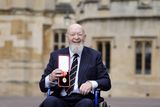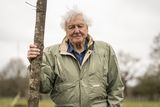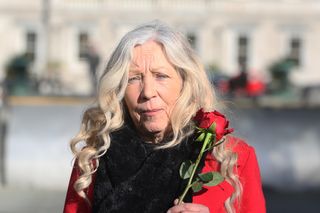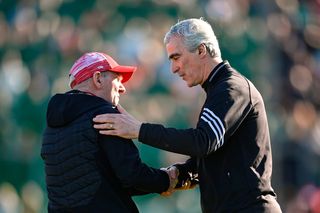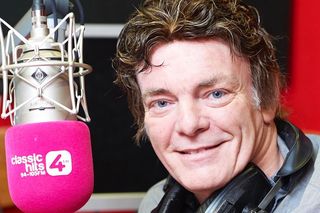Life lessons with soprano Claudia Boyle: 'The nerves never go away. You're not human if you don't get nervous'
Claudia Boyle (33) is an Irish soprano. She was born in Knocklyon, Co Dublin, as the second youngest of four girls, and she trained at the Royal Irish Academy of Music. She was a member of the Salzburg Festival's Young Singers Project in 2010, and two years later, she won the International Maria Callas Award, one of the highest honours in opera. She earned rave reviews for her performance in Enda Walsh and Donnacha Dennehy's opera, The Last Hotel, which toured internationally in 2015.
Claudia now splits her time between her home in Knocklyon with fiancé David, an accountant, and her work, which takes her all over Europe.
In a career like this, you learn so much in each performance. A couple of years ago, I thought I knew everything I had to know, but I really don't. It's very much about dealing with personalities.
My mum Helen loves music, I remember she was always singing in the house. She loves theatre, too. My parents were always bringing us to the theatre and exposing us to culture. They really wanted to give us every opportunity, but they never forced it on us either.
When you are young, you have to be made practise. No kid wants to sit in and practise, and that's completely normal. But there comes a time, usually in your pre-teens, where you start doing it yourself.
I studied cello first, I wasn't going to be a singer at all. I love it, I love the sound and the range of colours you can get from a cello. I did that as my degree, and even though I loved it, there was something missing.
There was always an instrument in the way, and I wanted to be the instrument. I wanted to 100pc have that connection. That was just how I felt - I played in orchestras for operas and musicals, and I was always sitting in the pit looking at the singers and being envious of them on the stage.
Salzburg is home to one of the biggest opera festivals. I'd be in a café and some of my biggest opera idols would be sitting two tables away drinking coffee. I was completely immersed in it. There were great opportunities and it really got my career going. I did work very hard, but I just threw myself into it and said: "If you're going to do this, give it everything."
The travelling and timetabling is the hardest part of it. Of course you miss home. You get to go to wonderful places and experience different cultures, but it's completely natural to miss home. I miss my family, my fiancé, my dog.
In Germany, nearly every village has an opera house, it's kind of like the pub in Ireland. People don't really grow up with it here. We are missing that a bit, but Irish people love music. We're really well received abroad, but is there an appreciation for opera here? No, not so much. I wish it was, but I think it's something that has to take time.
Arts is always the first thing that's going to be cut in a recession. When there are budgets, it's not viewed as a necessity. Places like Germany put us to shame.
Opera is still relevant in the 21st century, hugely so. There is that element of elitism and it's hard to break out of that. It tends to attract an older audience in Ireland and I think we still have to break through to younger people.
I love to work equally with theatre and with opera. If I ever hear it's a theatre director, I love it. Enda (Walsh) was amazing, we had a fantastic time. I'm a big fan, and I think his writing is quite heightened and it suits a heightened art form like opera. It's rare that the stars just align; we had a dream team.
I wouldn't be drinking the night before or even a couple of days before a show, never. I keep hydrated by drinking lots of water, steam, rest and getting really good sleep. If you wake up groggy, that really affects singing. I eat well, keep fit, all of those things to keep healthy.
Knowing when enough is enough - that's something I learned when I made the transition from cello to voice. You can't practise for as long as you would. I'm a bit of a geek and I always want to practise and do more, but you have to go for quality rather than quantity.
The nerves never go away. You're not human if you don't get nervous. Once you don't let them get the better of you, nerves can be healthy and make you feel alive.
David and I met through a mutual friend. We went to Ibiza together in a group, and after that he kissed me one night on the green of our estate in Knocklyon. We've been together 13 years, and we're getting married next year. It's funny because I never thought we'd get married, when you're together so long. He proposed on our 10th anniversary, and it was very romantic - he said really lovely things, and it's a lovely gesture.
There are great walks near my house in Knocklyon, we love doing that. When you're so busy and you're in a high-pressure job, I love getting out to nature. Even though it sounds really cheesy, it's really important, it's good for the soul.
I'd love to perform Lucia at the Met, that's a goal. If I'm being honest, I just want to continue doing good quality work that I'm proud of. I just want to be healthy and happy. That sounds like such an old thing to say, but I just want to feel confident in myself, and I think that's something that comes with age. It's important in a job like this to feel good about yourself.
Claudia Boyle performs at the National Concert Hall on November 6 as part of the Sunday Afternoon Recital Series. Tickets €20, nch.ie
Join the Irish Independent WhatsApp channel
Stay up to date with all the latest news

